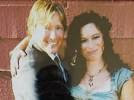I understand the offered wisdom from friends, acquaintances,
as well as many of the ‘pundits’ (you know the media guys and gals who know
everything) is to vote. If necessary, ‘vote
for the one you dislike the least,’ but still vote. OK, I get that. But, this is for the President of the United
States, not the local school board. Too
bad they never put ‘none of the above’ on ballots. It would give many of us a chance to express
our actual point of view. Well, I’m going
to give you my opinion – although no one asked; and darn few will actually read
this – fewer will care.
You see, it’s about my grandchildren (very young) and
great-grandchildren (not yet born). This election is potentially
an unusually historic time in American history; one for the books. Historians will study this election for
decades, maybe centuries. This election
could be considered to be an election like no other. The potential implications for all our
futures could be, probably will be, significant. I’d like my grandchildren and my
great-grandchildren to know what I thought.
Hopefully, somehow, this will be saved for them – perhaps unlikely, but
there is that possibility. But,
understand, this is not going to be some clichéd dissertation on preserving the
sanctity of their future. This is about
communication – me to them.
I have often considered that I know so little about what my
grandparents’ thought about anything.
And, at this stage in my life, it kind of bothers me. I don’t know if my grandparents were
particularly religious or not. I don’t
know what they really thought about politics, parenting, relationships, music, almost anything – except the very basics of life: work, eat, a roof over their heads, and the
ordinary human comforts of life. I don’t
know if they ever voted. I don’t know
much about their early life – only a few things. I don’t even know much about what they
thought about me.
My grandparents, on my mother’s side, I knew quite well –
sort of. My parents and I spent several
years living with my grandparents while I was in grade school. Later they lived across the street; and,
subsequent to that, always in the same town until their deaths. What was my grandfather like? He spoke little and worked hard on the small
farm he had for many years. He could be
cross with me, but never raised his voice.
He sometimes showed a kindly nature, even instructive to me (particularly
about animals and farming); and at other times he was downright mean, but never
in a physical sense. It was the small
things I remember. “You’re in my chair –
get up and sit somewhere else.” “Don’t
bother the pigs or the calves.” “Go feed
the chickens – do something worthwhile with your time.” “You and your friends go play somewhere
else.” Often times, when my grandmother,
‘Ma,’ heard those comments from ‘Pa,’ she quickly chastised him. It might be something like, “Just leave the
boy alone and go do something constructive.”
My grandfather never talked back.
He just headed for the barn.
My
grandfather came from a family of seventeen brothers and sisters. According to my grandmother, who knew all
about his family, my grandfather’s father, my great-grandfather, was a
despicable and cruel individual. Kids
were expected to work, and work hard, from a very early age – or pack-up their
few belongings and get the hell out. As
a result, my grandfather had little in the way of what we might now consider to
be a childhood.
My grandparents had many hard times – some of those times were told to me as
lessons in how unfair and difficult life can be; how they lost their farm in
Wisconsin and had to move West to work in the shipyards during World War II;
and how, just before they moved West, their beautiful eighteen-year-old
daughter died of 'blood-poisoning' and that they didn’t have enough money to buy her a headstone.
My grandfather, on my father’s side, told me that he was
‘born under a rock,’ and didn’t want to talk about his past life. For a small boy, the rock comment was
memorable. He died when I was about eight
or nine. I later learned that he left
home at fourteen or fifteen, went to work in a logging camp, and never looked back. His early adulthood was remarkable by hard
work and hard living, excessive drinking, cussing and two or three marriages. As a father, he was by all accounts, remote
and showed little responsibility; as well as little interest in his sons and
daughters. As a grandfather, he seemed
kind and interested in me, but was known to drink too much. I had my first trip to a tavern when I was
about six, accompanying my grandfather.
My mother made it clear to him that was never to ever happen again.
Why did I bring any of this up relative to the current
election? I suppose to show the contrast
between then and now. Life has become so
leisurely for many of us (not everyone of course, but most of us) that we have
nearly unlimited time to think about and discuss the so-called ‘important
issues’ like what Presidential candidate do we dislike the least; and should we
even bother to vote. Friends can get
downright testy about the issue.
And, for my grandchildren and my future great-grandchildren,
so that they might not have to guess, I will tell them what I’m thinking about
now.
To be continued…
True Nelson
PS: In case you are wondering, the picture above is Ma and Pa on their wedding day - April 16, 1911.













